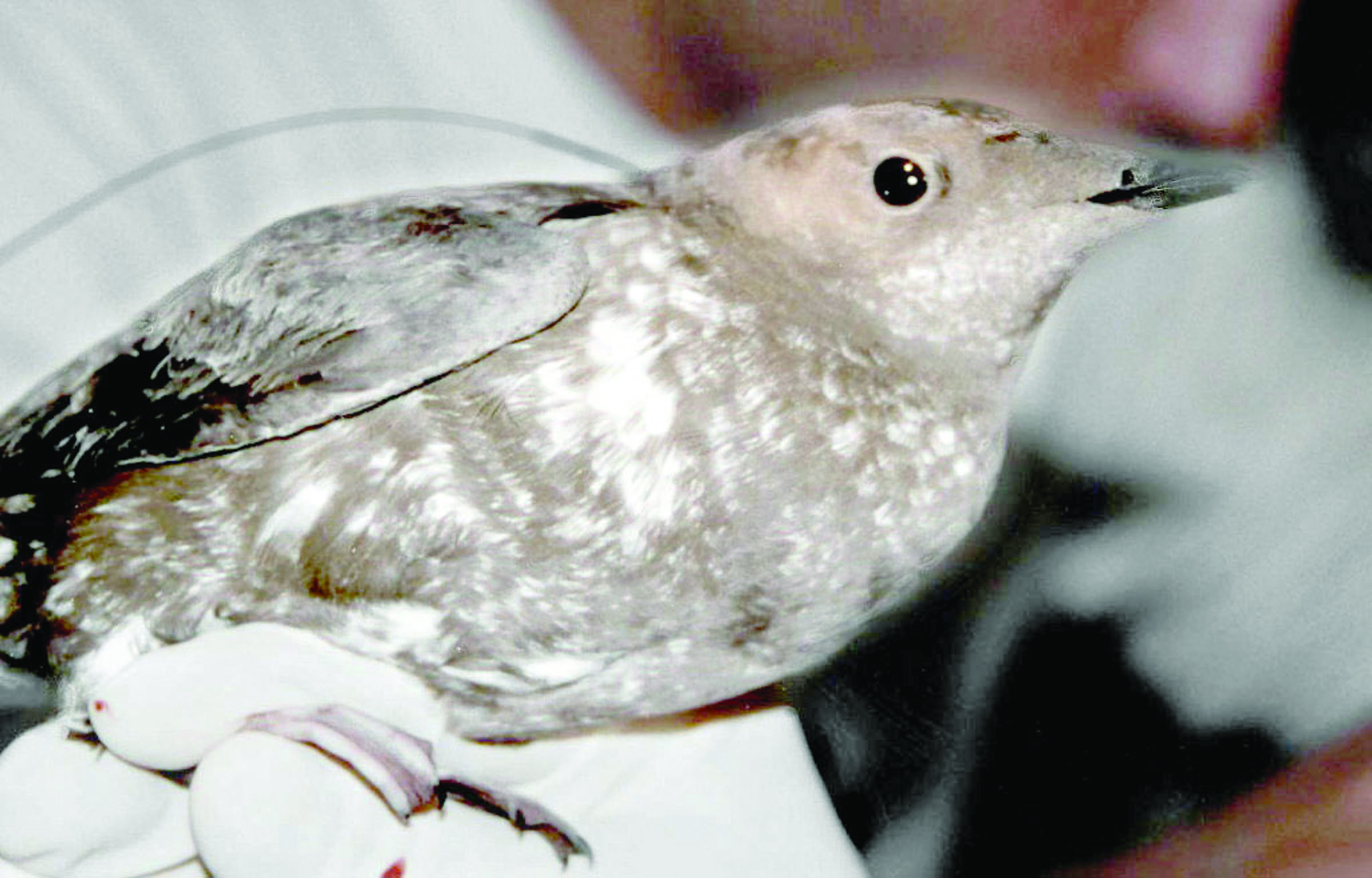Three conservation groups intend to ask Jefferson County Superior Court Judge Keith Harper to stop a state-approved harvest of 234 acres of timber on the West End adjacent to habitat of the threatened marbled murrelet.
Meanwhile, 10 people are out of work and the jobs of another 88 are threatened as logging companies await permission to proceed.
Having bid well over the estimated value of the timber in April, lumber company Interfor is scheduled to begin logging from the Department of Natural Resources’ Goodmint and Rainbow Rock harvest units June 13.
The units in west Clallam and Jefferson counties are surrounded by old-growth forests.
But the Seattle Audubon Society and the Olympic Forest Coalition have lawsuits pending in both counties to try to stop the harvest, claiming the trees are in forest specifically identified to expand habitat for the marbled murrelet.
Peter Goldman, the Seattle attorney for the conservation groups, said he plans to file for an emergency injunction to stop Interfor’s harvest from beginning before those lawsuits are resolved.
“In more than 20 years of practicing public interest environmental law, I’ve never seen anything like this,” Goldman said.
“[The Department of Natural Resources] has totally undermined our state’s open, public process by allowing loggers to cut the trees while the timber sale is being challenged in court.”
The marbled murrelet, a member of the auk family, is listed as a threatened species under the federal Endangered Species Act.
Old-growth forests trees near the ocean are considered critical habitat for the small seabird’s nesting habitat.
The stands on the West End surrounding the Goodmint and Rainbow Rock sites have been set aside under the state’s habitat conservation plan with the federal government.
State officials say the second-growth trees in question are not vital to the murrelet’s habitat, while Interfor says the trees are badly needed to supply the company’s mill in Beaver and delays are costing jobs.
“The timber in the Goodmint and Rainbow Rock sales, there is no marbled murrelet habitat in these sales, and we are protecting the nearby habitat with a buffer nearly double the width of what’s required of private landowners in Washington,” said Kyle Blum, deputy supervisor for state uplands for the Department of Natural Resources.
The trees slated for harvest in the two sites were planted 30 to 60 years ago to replace old-growth logs that had been harvested.
Blum said the state set the June 13 date in anticipation the conservation groups would file for an emergency injunction.
The conservation groups say a 2008 science report compiled by experts as part of the habitat conservation plan specifically identified the two sites for protection and recovery of the bird’s habitat.
“The report never envisioned that all land would be protected,” Blum said. “That report hasn’t been adopted as policy.”
Goldman said the state’s decision to allow the Goodmint and Rainbow Rock harvests to proceed is driven by its fiduciary responsibility to use state-owned land to generate revenue for schools and universities.
“[Department of Natural Resources] and the timber industry are hiding behind school children to get the cut off our forests,” Goldman said.
“And now they are allowing a private timber company to deprive the citizens of their right to appeal because all the wood off private lands is going out as whole logs to China.”
Interfor bid $1,420,411 for the timber from the Goodmint unit in Jefferson and Clallam counties in April and $706,002 for the Rainbow Rock timber in Jefferson County.
The Goodmint bid was 24 percent above the minimum bid set by the state, while the Rainbow Rock bid was more than double the minimum.
“Interfor was willing to pay those prices because the large logs from those two sales are critical to keeping the Beaver/Forks operation supplied during the third and fourth quarters of 2014,” Steve Courtney, Interfor’s pacific northwest timber procurement manger, said in Clallam County court filing.
Because of its financial stake in the two sales, Interfor has been granted intervenor status in the two pending cases.
Timber from the harvests would be milled at Beaver into construction-size lumber.
Courtney, too, said most all timber logged from private land on the Olympic Peninsula is being exported as whole logs to satisfy a “nearly insatiable demand” by Chinese builders who want the wood to use as concrete forms.
Tariffs instituted by Russia on log exports to China in 2009 resulted in a “dramatic and immediate increase in exports of Northwest logs to China,” Courtney said.
Without the timber from Department of Natural Resources, which is legally prohibited from being exported, Interfor would not have enough work for the 81 hourly workers and seven salaried employees it employs at the Beaver mill, Courtney said.
“Interfor is not only significantly impacted directly by these operational disruptions, but its contractors and the people employed by those contractors are as well,” he said.
Construction of roads to the harvest sites was anticipated to begin May 19, but it has not proceeded because of the litigation, Courtney said.
Having equipment sit unused is costing the company Interfor contracted to build those roads $4,200 a day, and six people are not working because of the delay, he said.
Another four workers from Interfor’s logging contractor are also not currently working.
________
Sequim-Dungeness Valley Editor Joe Smillie can be reached at 360-681-2390, ext. 5052, or at jsmillie@peninsuladailynews.com.

